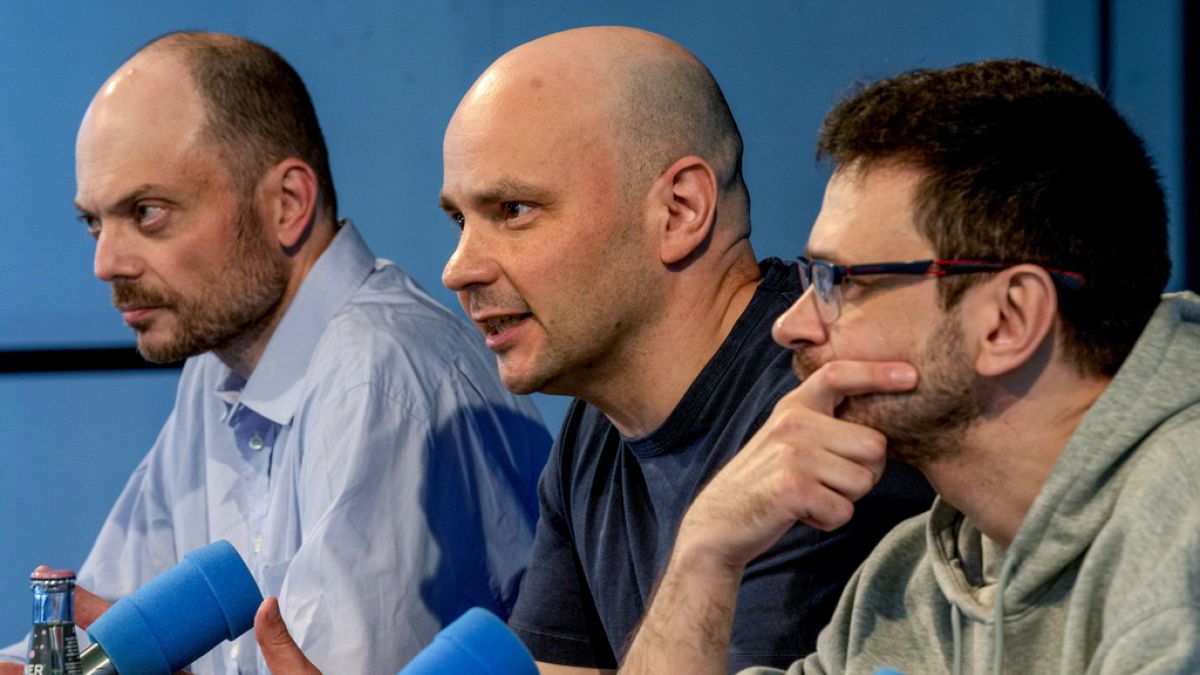Russian opposition figures involved in the recent prisoner swap between Russia and Western countries, which was the biggest since the Cold War, gathered for a press conference in Bonn, Germany. The released dissidents, including prominent opposition politician Ilya Yashin, discussed their experiences in prison, their feelings after being released, and their commitment to continue their activism to bring about change in Russia. Yashin, who was serving a sentence for criticizing Russia’s war in Ukraine, expressed a heavy burden knowing that his comrades remain imprisoned. Despite this, he is determined to return to Russia and continue his political activities despite the risks involved.
The exchange involved the release of journalists, political activists, and foreign nationals who were jailed on politically motivated charges. One of the released individuals, Vladimir Kara-Murza, a dual Russian-UK citizen, had been serving a 25-year sentence on a treason conviction that was widely seen as politically motivated. Kara-Murza emphasized the impact of imprisonment not only on the detainees but also on their families, highlighting the deliberate harm caused by the Russian authorities. He stressed the importance of not succumbing to Kremlin propaganda and remaining committed to the fight for freedom and democracy in Russia.
During the press conference, the former prisoners revealed that they had refused to formally request pardons from Putin, arguing that their deportation from Russia without their consent violated the constitution. Despite the challenges they faced, they expressed a strong belief in a future where Russia would become a free and civilized European country. Kara-Murza, who had survived near-fatal poisonings he attributed to the Kremlin, urged fellow Russians to persevere in their opposition to the war in Ukraine and not be swayed by the regime’s tactics.
The prisoner exchange highlighted the ongoing crackdown on dissent in Russia, with hundreds of individuals remaining imprisoned for speaking out against the government’s actions. Yashin and Kara-Murza’s refusal to seek pardons and their determination to continue their activism send a powerful message of defiance against the Kremlin’s oppressive tactics. While the release of the political prisoners provides a glimmer of hope, the risks and challenges they face underscore the urgent need for international support and solidarity in the fight for democracy and human rights in Russia.
The exchange serves as a reminder of the human cost of political repression in Russia and the importance of standing up for fundamental freedoms and the rule of law. By sharing their stories and committing to ongoing activism, the released opposition figures inspire others to continue the struggle for democracy and justice in the face of adversity. As they navigate the challenges of rebuilding their lives after imprisonment, their resilience and determination serve as a testament to the enduring spirit of those who refuse to be silenced in the pursuit of a better future for Russia.
In conclusion, the press conference held by the former political prisoners following the prisoner exchange sheds light on the ongoing human rights violations and political repression in Russia. Despite the risks and challenges they face, individuals like Ilya Yashin and Vladimir Kara-Murza are unwavering in their commitment to advocating for change and standing up to authoritarianism. Their courage and perseverance serve as a beacon of hope for those still fighting for justice and democracy in Russia and underscore the importance of international support in holding the Russian government accountable for its actions. The exchange may have provided a temporary reprieve for some, but the struggle for freedom and human rights in Russia continues unabated, fueled by the bravery and resilience of those who refuse to be silenced.










